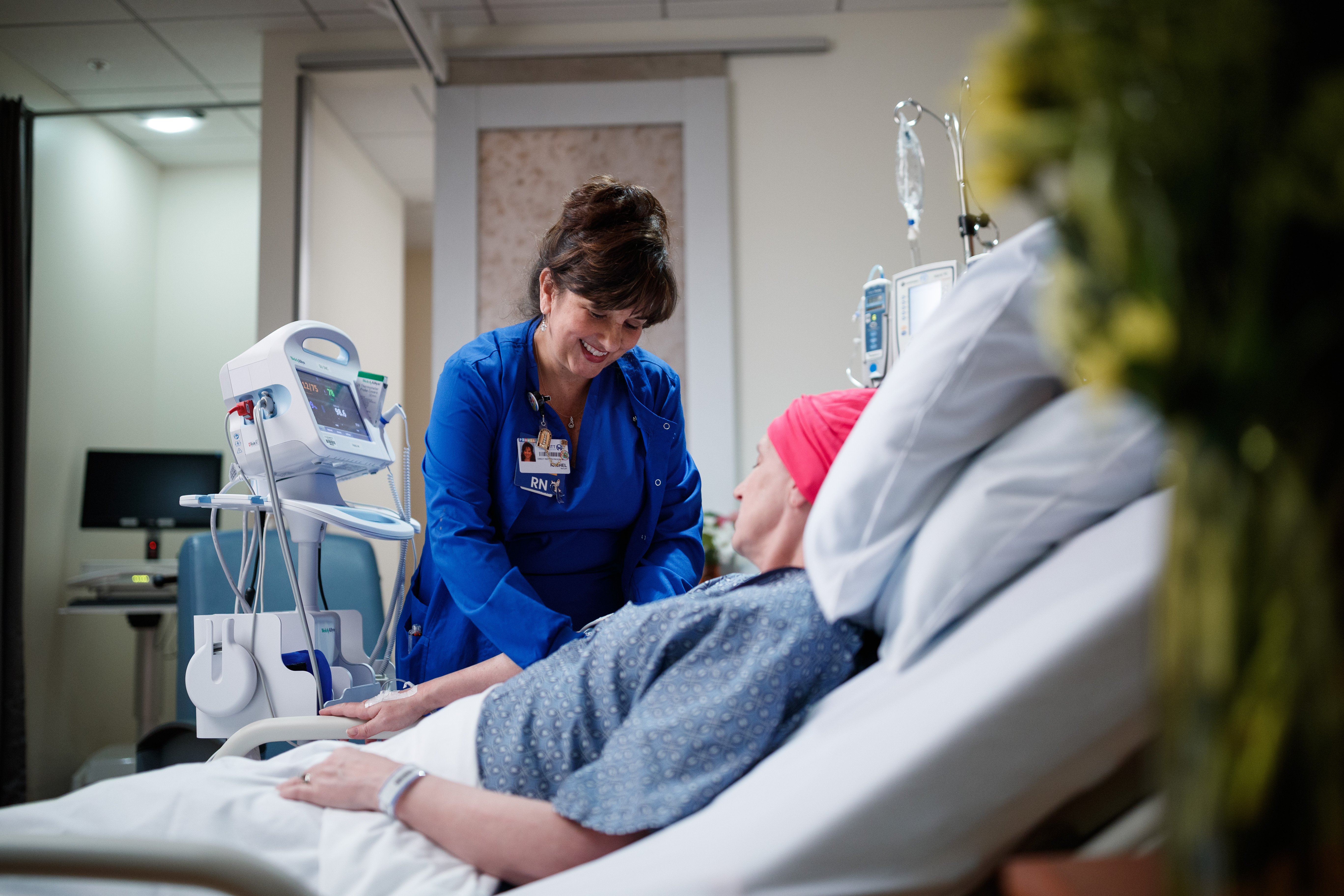
Oncology Nursing Jobs: What You Need to Know
Due to the many landmark scientific breakthroughs achieved over the last several decades, the field of oncology has advanced by leaps and bounds, effectively changing the face of modern medicine. For instance, researchers have recently discovered and developed several revolutionary cancer treatments, including precision immunotherapies, and more is being learned every day. Many experts predict that the rate of progress will continue—and even accelerate–—well into the future.
Today, nearly everyone is affected by cancer in some way. Each person who receives a cancer diagnosis needs specialized care from a knowledgeable oncology team that includes nurses. If you are passionate about making a meaningful impact on the lives of many people, a career in oncology nursing can be an enriching journey. Like many nurses, you probably want to grow in your career and be continually challenged. The field of oncology offers all that and more: It is exciting, rewarding and ever-evolving.
What does an oncology nurse do?
An oncology nurse is a registered nurse (RN) with advanced training who specializes in caring for people who have cancer or are at heightened risk of developing it. Oncology nurses care for patients at all stages of the cancer journey, including prevention, diagnosis, treatment, rehabilitation and remission.
Due to the serious and uncertain nature of cancer, oncology nurses must have a strong capacity for compassion as well as an ability to function at a high level in emotionally charged settings. Because cancer patients sometimes have frequent medical appointments and may require long-term care, oncology nurses often build strong relationships with their patients and serve as their fiercest advocates. In addition to providing essential medical care, they also provide emotional support, companionship and education to cancer patients and their families.
How to become an oncology nurse
Oncology nursing is a specialty within the field of nursing. To pursue a career in this field, your first step is to complete a foundational nursing education program accredited by the Commission on Collegiate Nursing Education (CCNE) or the Accreditation Commission for Education in Nursing (ACEN).
The three main degrees for RNs are:
- Associate of science in nursing (ASN)
- Bachelor of science in nursing (BSN)
- Master of science in nursing (MSN)
The admission requirements for nursing programs can vary based on the level of education pursued. For instance, initial nursing programs, such as ASN and BSN, typically require prerequisite coursework in science, anatomy and physiology, math and medical terminology.
If you are already a Licensed Practical Nurse (LPN), you might consider an LPN to BSN bridge program. Some schools also offer an accelerated BSN program for students who have earned a bachelor’s degree in another field.
After earning a nursing degree, your next step is to obtain a license to practice as an RN in your state by applying to your state’s nursing regulatory body. The requirements for licensure can vary but typically involve passing an examination, such as the National Council Licensure Examination (NCLEX) as well as a background check and drug test.
Once you are licensed as a registered nurse, you can apply for entry-level work in oncology and acquire hands-on experience. To further specialize in oncology, you can earn the Oncology Certified Nurse (OCN) voluntary certification through the Oncology Nursing Certification Corporation (ONCC). In addition to enhancing your knowledge and skills, this additional certification will demonstrate your commitment to excellence in oncology nursing.
Where do oncology nurses work?
The explosion of the field of oncology calls for more specialized nurses, including:
- Infusion nurses
- Nurse educators
- Nurse researchers
- Advanced practice nurses
- Surgical nurses
- Radiation therapy nurses
As such, oncology nurses can practice in a variety of settings, such as:
- Cancer centers
- Hospitals
- Infusion centers
- Physicians’ offices
- Outpatient clinics
- Hospice facilities
- Patients’ homes
Each environment presents unique opportunities for an oncology nurse to make a positive difference in the lives of many people affected by cancer.
Oncology nursing opportunities at Moffitt Cancer Center
A nationally renowned institution dedicated to the prevention, detection, treatment and cure of cancer, Moffitt offers exceptional career options for oncology nurses, including roles in direct patient care, research, education and leadership. Moffitt is a National Cancer Institute-designated Comprehensive Cancer Center, and our oncology nurses have opportunities to work with cutting-edge technologies, participate in groundbreaking research and contribute to the development of innovative cancer treatments.
Moffitt prioritizes continuous professional development, and we offer ongoing education and training to ensure that our nursing staff remains firmly positioned at the forefront of oncology care. We are committed to maintaining a collaborative and supportive work environment where oncology nurses can thrive in their careers while enhancing the lives of cancer patients and their families.
A career in oncology nursing at Moffitt Cancer Center can be a fulfilling and impactful choice. Apply now, and join our dedicated, diverse and inclusive team in the fight against cancer.
